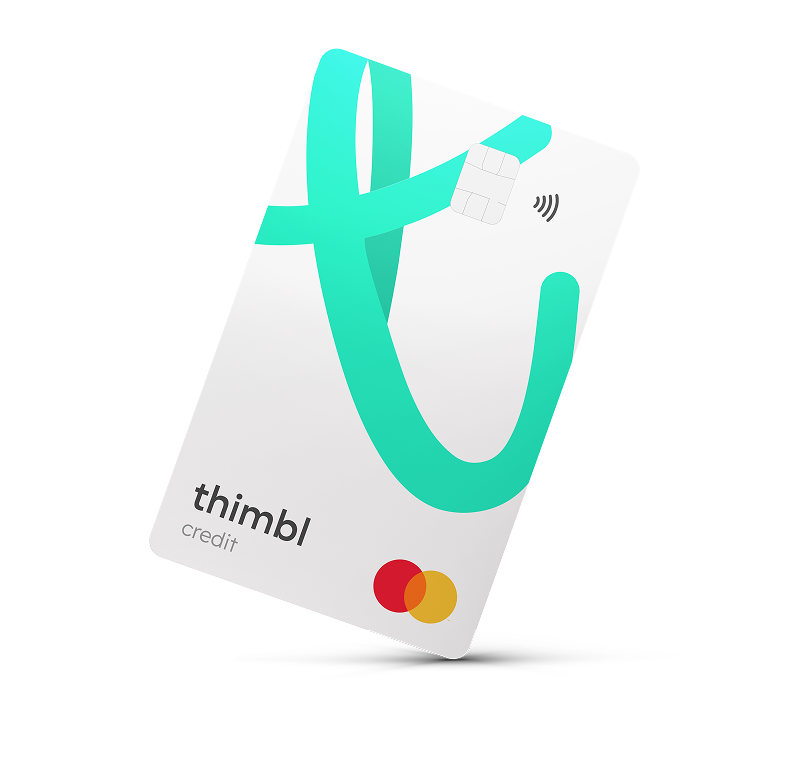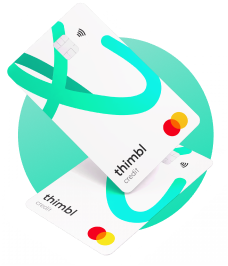Money Transfer Credit Cards
Credit Cards for Money Transfers
Our guide shares some key information on money transfer credit cards, what they’re typically used for, and things to think about before you search for one.




What’s a money transfer credit card?
Is a money transfer credit card the same as a balance transfer credit card?
How do you transfer money from your credit card to your bank account?
A money transfer credit card allows you to borrow money and move funds into your current, personal, UK bank account.
- For all credit levels, from poor to excellent
- Checking won’t affect your credit rating
- 48.9% APR Representative (variable)

How much does a money transfer credit card cost?
You’ll be charged interest on the amount of money you borrow.
Some money transfer credit cards could come with a 0% interest promotional period, which will enable you to use your credit card to transfer or spend money for a set period, without incurring any interest. Remember, once this introductory offer comes to an end, any remaining credit card balance will be charged interest at a standard rate.
The interest rate you’re offered will depend on several factors, including your credit score.
Some providers may also charge a money transfer fee at the time of transaction, which is likely to be a percentage of the total amount of money you’re transferring.
When might a money transfer credit card be useful?
A money transfer credit card could be useful if you need to cover the cost of something that cannot wait, but you don’t have the immediate funds upfront, and paying with a credit card isn’t an option.
- Let’s say you need £250 to pay for urgent home repairs, but the company you’re using doesn’t accept credit card payments.
- You could use a money transfer credit card to borrow £250 and move the funds across to your bank account, which would pay for the work to be done. You’ll need to ask your credit card provider to transfer the money, and you may be charged a transfer fee.
- You would then repay the money borrowed in monthly instalments. This will typically include interest, unless your credit card is subject to an interest-free period.
- If your money transfer credit card has an interest-free period, you might aim to clear the balance before the promotional offer comes to an end.
A money transfer credit card is not the only option in this situation; further down the page, we’ll list some possible alternatives that you may wish to consider.
How do you repay a money transfer credit card?
Any money spent on a credit card is required to be repaid. You’ll need to make at least the minimum repayment amount each month until your balance has been cleared. If you pay your balance in full, you won’t be charged interest.
Is a money transfer credit card the same thing as a balance transfer credit card?
No, although their names sound similar, it’s important to understand that these cards serve very different purposes.
With this in mind, you might ask, ‘what’s the difference between a money transfer credit card and a balance transfer credit card?’
As previously mentioned, a money transfer credit card enables you to move funds from your credit card into your bank account, whereas a balance transfer credit card is designed to allow you to move the balance of one or more existing credit card(s) onto a new credit card, with a lower interest rate. Some balance transfer credit cards come with promotional periods which offer no or low interest for a set period of time.
Things to consider before you apply for a money transfer credit card
- A credit card, regardless of the type, is a serious financial commitment. You must be absolutely certain that you’re able to repay the money you borrow while still covering the cost of your essential outgoings, such as groceries and bills.
- You should never use your credit card to spend more money than you need to, or can afford to repay.
- Some money transfer credit cards could come with a minimum and/or maximum transfer amount.
- You might also be required to make the transfer within a certain amount of time, for example, within 30 days of you receiving your credit card. Again, this is something that will vary between providers, and you should be able to find this information on the terms and conditions of your chosen card.
- You may be charged a transfer fee. You should carefully read through the terms and conditions of your chosen credit card before you sign your agreement, so you know exactly what to expect.
- If your money transfer credit card comes with a 0% interest period, you should be aware that once the promotional offer expires, any balance remaining will be subject to a standard rate of interest.
Can I use a money transfer credit card to transfer money to somebody else’s bank account?
It’s unlikely that you’ll find a provider willing to approve this request. Most providers will only allow you to use a money transfer credit card to move funds across to your own UK bank account. The bank account in receipt of the money is usually required to be registered in the same name as the one that appears on your credit card.
Could I withdraw the cash from my money transfer credit card myself, and then pay it into my bank account?
No, you’ll need to ask your provider to complete the money transfer.
You should avoid using your credit card to withdraw money from cash machines. This is called a ‘cash advance,’ and may be viewed as poor money management, which could affect your chances of being approved for credit in the future.
A cash advance could also harm your credit score.
How long will the money transfer take?
Transaction timescales will vary between providers; the transfer could take anywhere from a couple of hours, to several days. The time it takes for the money to become available in your account will also depend on your bank’s policies and procedures.
Who can get a money transfer credit card?
Each credit card provider will have their own set eligibility criteria, however, you can usually apply if you:
- Are over the age of 18;
- Are a UK resident. Please note that some providers may ask for a minimum of three years’ worth of UK address history;
- Have a UK bank account with a valid debit card; and
- Have a regular source of income paid into your bank account.
Can I get a money transfer credit card with bad credit?
You might be able to find a provider willing to consider your application, however, you should bear in mind that credit cards for bad credit could come with high interest rates. You should think very carefully before you make an application.
Alternatives to a money transfer credit card
If you’re unsure whether a money transfer credit card is right for you, there are other options you may wish to consider.
- Personal loan
A personal loan could help to keep your finances afloat in the event of an unplanned expense, such as a packed-up boiler, or urgent car repairs. A loan is a sum of money borrowed from a lender, which is then repaid in monthly instalments. Please be aware that your monthly repayments will include interest. - Borrow from friends and family
Is a loved one able to help you out? They may be willing to lend you the money with a lower interest rate than a high street lender or provider. They might even agree to lend you money interest-free. It’s important that borrowing from family and friends can be risky, and could cause serious damage to your relationship if pre-agreed repayments are made late or missed. - Save up
How urgent is your need for money? If it’s something that can wait, you might like to avoid borrowing money altogether by saving up. This method could take longer than borrowing money from a lender or provider, but you won’t need to pay any interest.
What happens if you don’t repay a money transfer credit card?
Making a late credit card repayment, or missing one altogether, could result in late fees, additional charges, and a decline to your credit score.
If you find that you’re no longer able to afford the repayments on your money transfer credit card, you should contact your lender as soon as you can. They may be able to offer some suggestions on what to do next to help ease the financial pressure.
I’m struggling with money; where can I get help?
If you’re experiencing money worries, please know that you can access free, confidential support and advice through StepChange, MoneyHelper, Citizens Advice, and National Debtline.

Page last reviewed: 13th January 2025
Page reviewed by: Alex Kosuth-Phillips
You get all this with thimbl
Tap and go
Quick and easy contactless payments up to £100.
Secure banking app
Manage your credit card online, wherever and whenever you like, with the free mobile app.
A trusted service
Over 4,500 positive reviews from our customers.
48.9% APR Representative (variable)
Quick links







Worried about money?
If you're worried about the cost of living, need support with budgeting, or think you might need debt advice, StepChange could help. They offer free and impartial support and help hundreds of thousands of people every year to deal with their debts and take control of their finances.
To find out how StepChange could help you, take the free Money Health Check. It's quick and easy to complete, and will give you a personalised recommendation on what to do next.
Meet the team
Head of Compliance
Head of Partnerships
Managing Director, thimbl
Marketing Manager, thimbl
Financial Content Writer
Frequently asked
questions
If you've got a question, you may just find the answer you're looking for here. If not, please visit our contact us page and get in touch.
What will my credit limit be?
You will always be made aware of any credit limit changes to any credit cards you have beforehand, and you do not have to accept a credit limit increase if you don't feel it's right for you.
What happens if I fail to make my repayments?
Missed payments will be reported to the credit bureaus, and your account will appear as in arrears. You will be charged a late fee, which is usually around £12. Your credit rating is also likely to decline as a result.
You should try to make your missed payments as soon as possible.
If you're struggling to keep on top of your repayments, you can find free, impartial advice from MoneyHelper, StepChange, Citizens Advice and National Debtline
If you want to know more about how credit cards work, you can read our blog.
Did you find this article helpful?
Let us know how we can be more helpful
Please leave your anonymous feedback to help us keep improving.
Need help or support?
Whether it's a question or you just need support, we're here to help.







